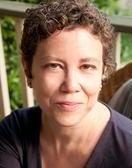Dear Interfaith Mom:
We’re a family that is interfaith by heritage, but we don’t belong to any religious community. And we’re fine with that. We’re atheists, we lead a secular life, and we already have plenty of communities (through our neighborhood, schools, family and work). Why do you put so much emphasis on the importance of interfaith family communities? Not every interfaith family feels a need to commune with other interfaith families.
–Sincerely, Happy Humanist
Dear Happy Humanist,
If you have the communities you feel you need, that’s great. There is no single “solution” that is going to work for every interfaith family. Some will be fulfilled choosing one religion. Some will be just fine choosing no religion. Some families with humanist or atheist parents have traditionally found homes in Unitarian-Univeralist (UU) communities, in Ethical Culture, or in Humanistic Jewish congregations.
With the increase in interfaith marriage, and the decrease in religious affiliation (the rise of the “religious nones”), innovative new communities have been growing at the grassroots. There’s been a lot of recent media coverage of emerging atheist congregations, designed with many of the benefits provided by religious communities (singing together, reflecting together, community service and support), but without the need for God. In fact, this idea is not new: Ethical Culture (the movement that supports Ethical Societies in many areas) has existed since the late 19th century.
But it’s not always easy for interfaith families to find the right spiritual, religious, or humanist community, and not every community specifically addresses the issues faced by interfaith families. That’s why I spend a lot of time writing about meeting the needs of interfaith families. The major communities designed by and for interfaith families celebrating both Judaism and Christianity (in Washington, Chicago, and the New York area) include many atheist, humanist or secular parents, as well as parents with a broad array of beliefs in God. The one thing these families share is a desire to give their children an educational foundation, or literacy, in both family religions. So parents who choose these communities need to be comfortable with their children learning about different approaches to God in dual-faith Sunday Schools (while understanding that these programs never tell children what to believe).
When the school-year ends, my own interfaith families community does not meet formally for Gatherings or Sunday School. But in this endlessly hot summer, I have still felt strongly connected to this community, in the way that many people feel connected to a synagogue, temple, mosque, or church. As a group, we are bringing food weekly to one family with a parent facing cancer. Last week, our minister organized a healing service for family and friends of a young adult child in crisis. Meanwhile, our rabbi is planning High Holy Day services for early September—a time when we will return to celebrate together the Jewish roots we share (through our own parents, or through our interfaith children and grandchildren).
In short, Happy Humanist, you may not want or need this type of community. But know that there are communities (whether UU, Ethical Culture, humanist, or interfaith families communities) that would welcome you as atheists, or with any theological or non-theological label you choose, should you ever feel that you want or need us.
–Interfaith Mom

